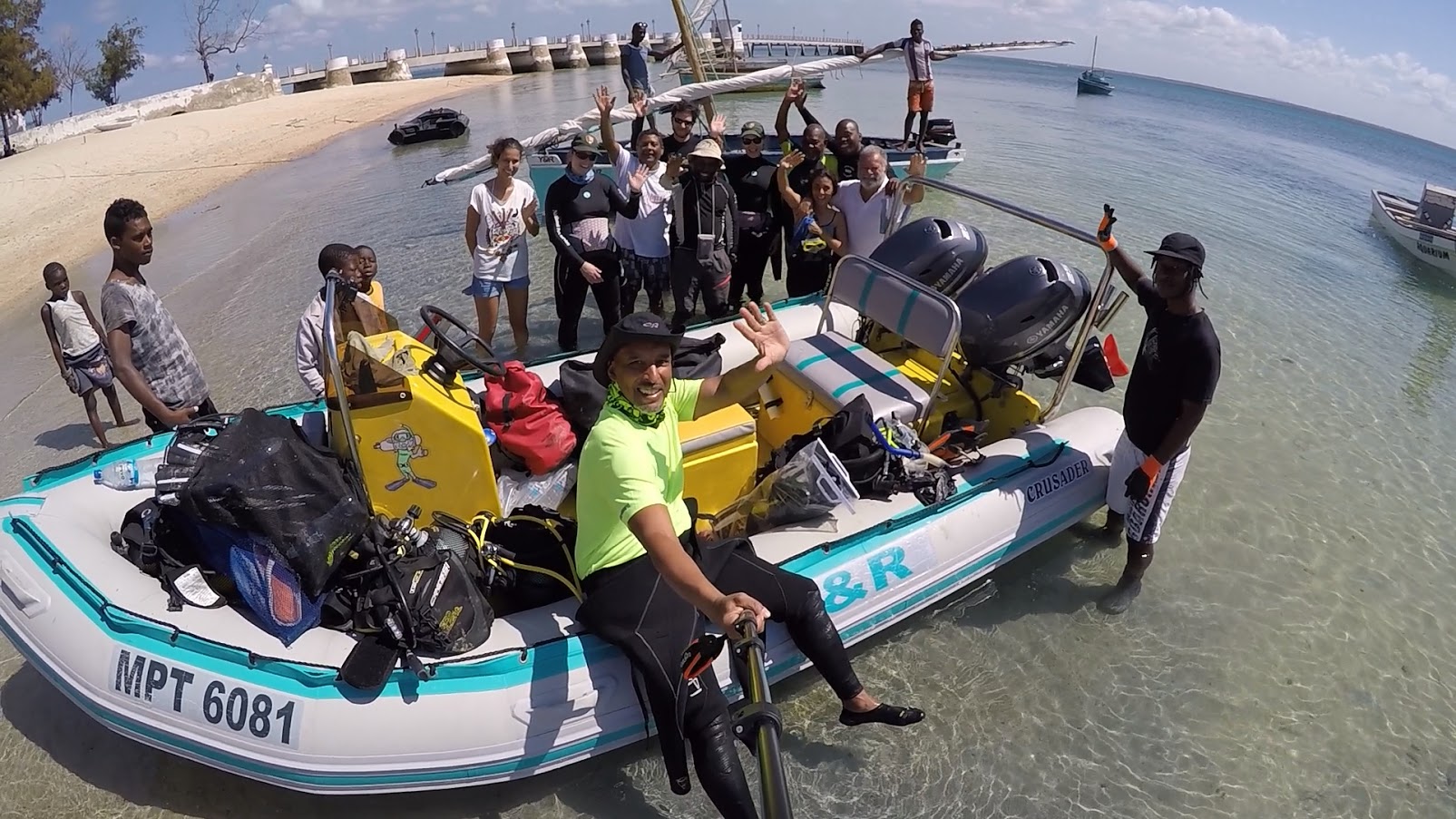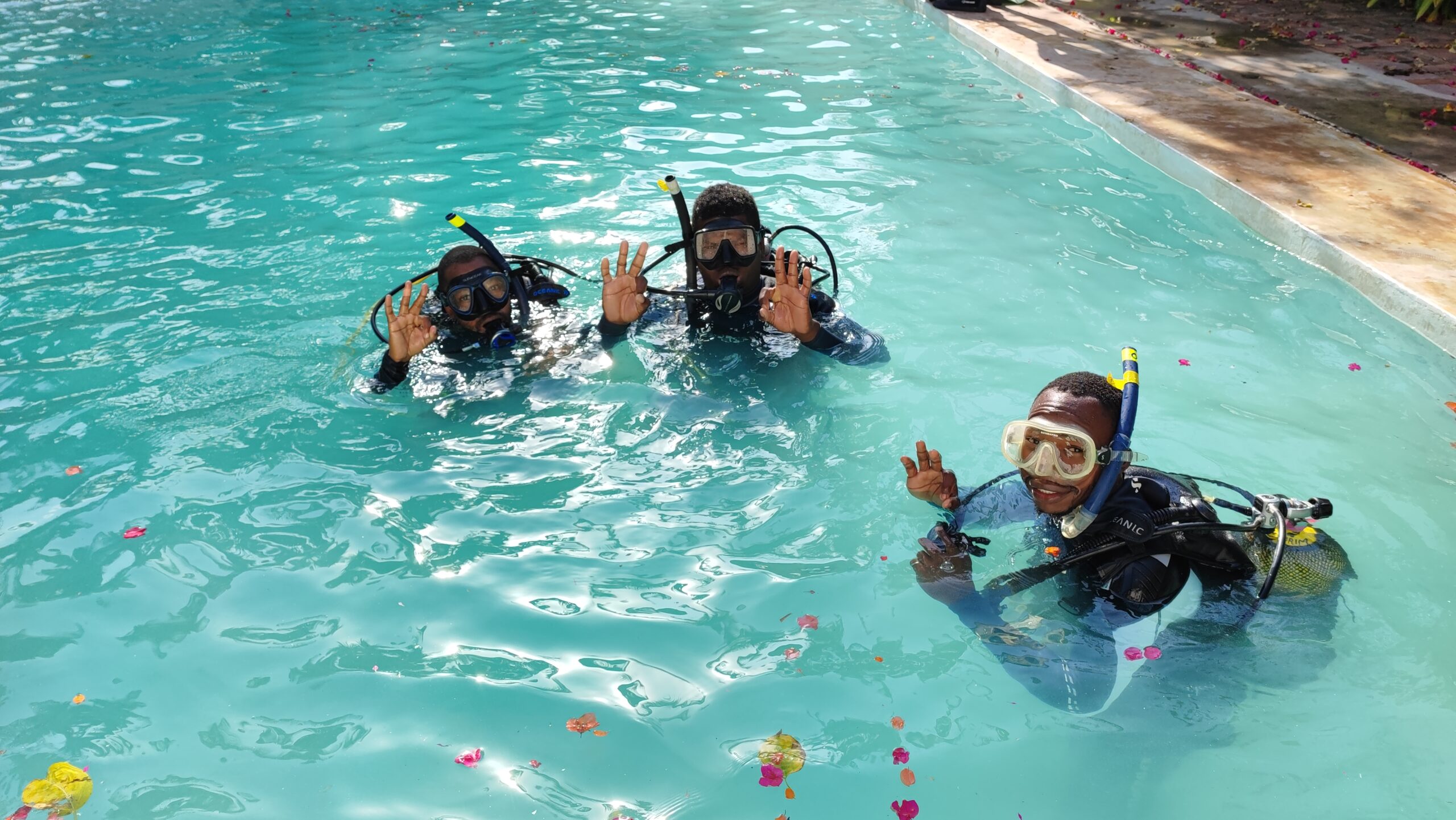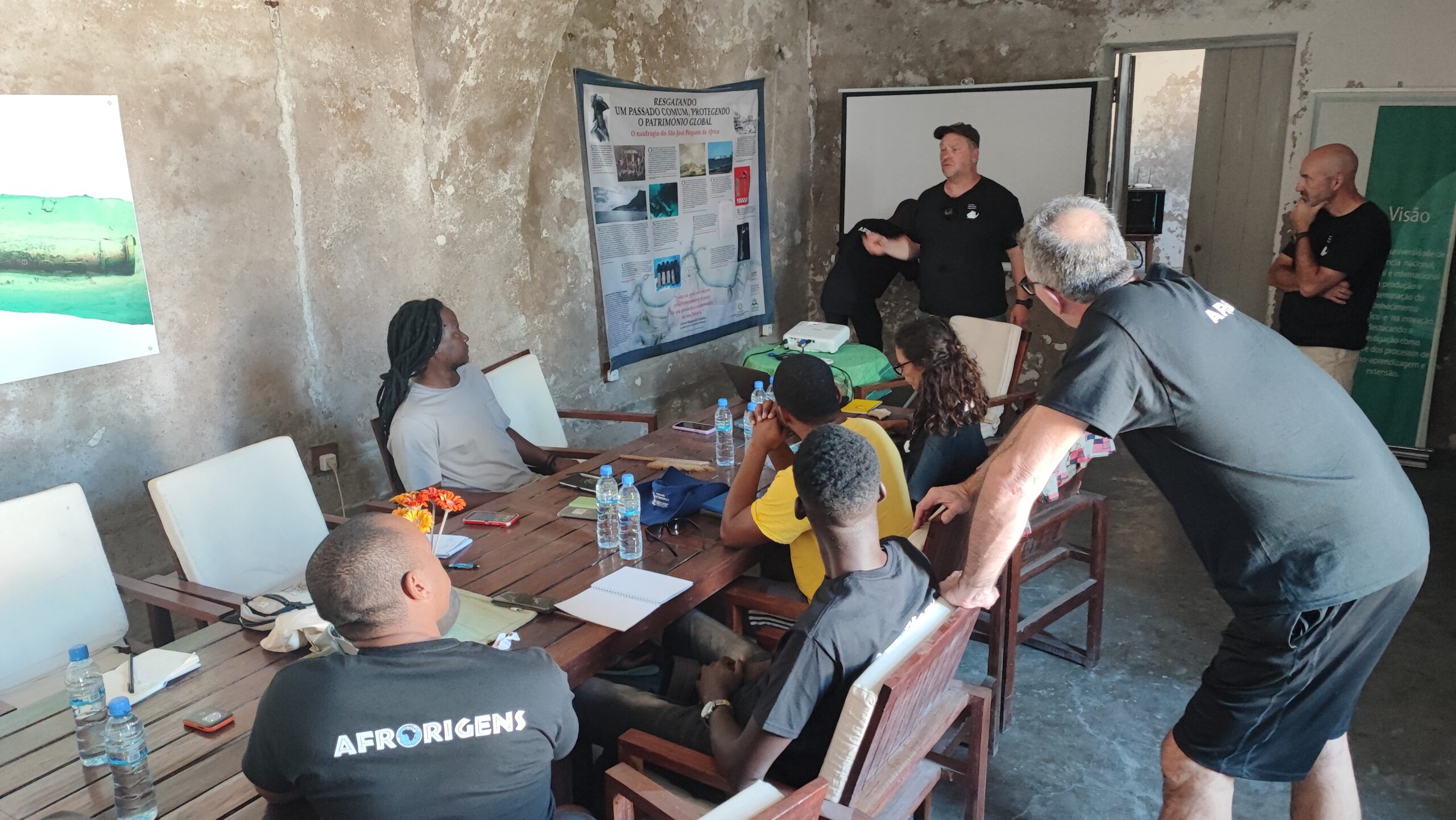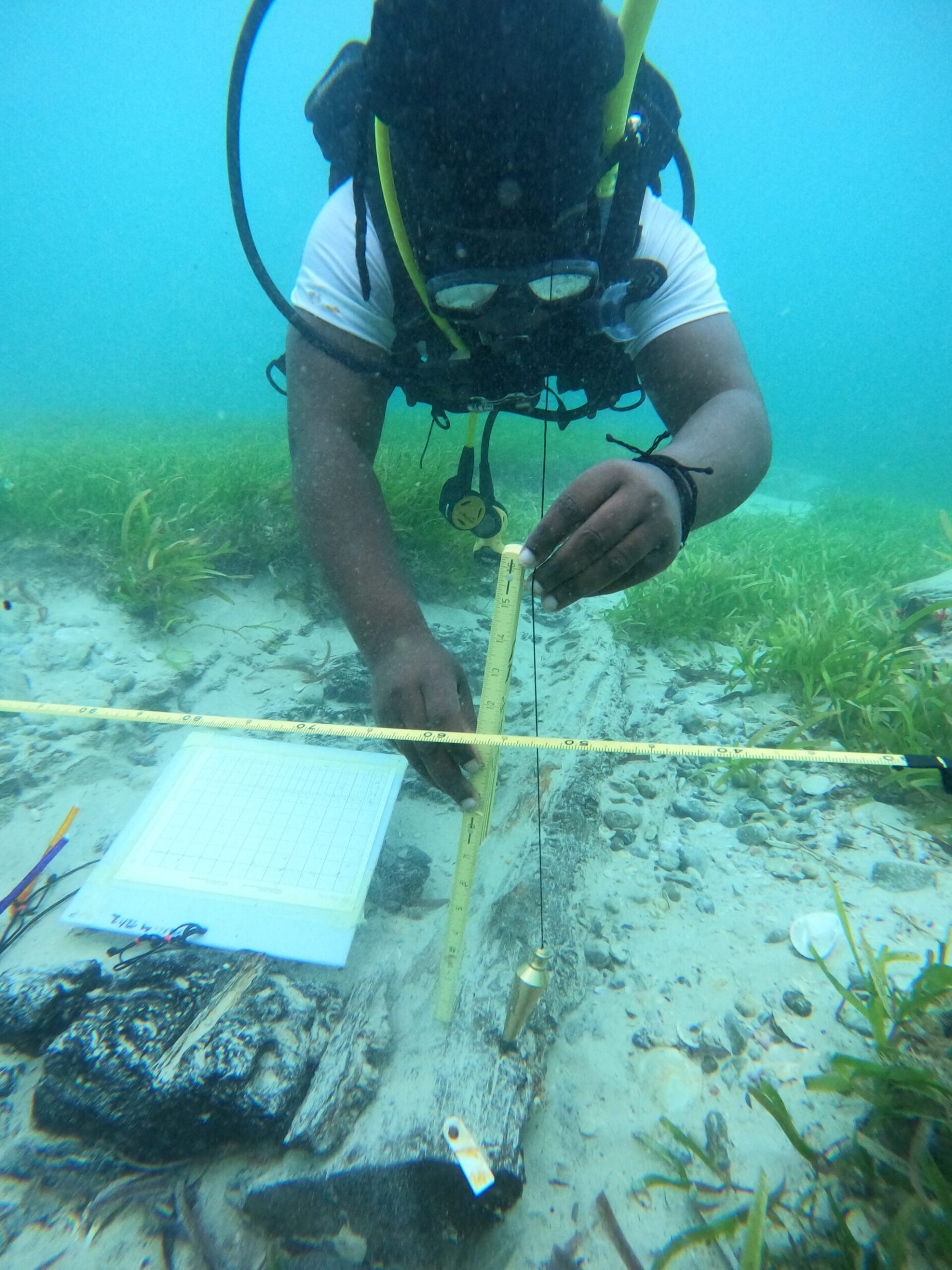Initiatives in Mozambique
November 28, 2023

SWP participants, including Hiliard Dean (foreground) pose for a photograph before embarking on fieldwork on Mozambique Island in 2018. Photo by Hiliard Dean.
Learn more about our work in Mozambique
SWP is involved in several dynamic initiatives in Mozambique, focusing on community building, education and research.
First launched in 2018 in Mozambique, SWP’s Community Stewards of Heritage Program trains local community members to scuba dive and conduct non-destructive site documentation, enabling them to participate in underwater archeological research and public interpretation. Our Community Stewards program has empowered local communities to protect their own heritage by monitoring these sites. Non-divers learn about, and participate in terrestrial archeology, conservation work, and oral history research in order to become stewards. This program is also exploring how it can support the development of cultural tourism in a way that benefits the local economy. This innovative, community-inclusive approach to submerged site research and heritage protection has been recognized by the U.S. Department of state, which has awarded SWP’s national partners in Mozambique with multiple grants from the Ambassadors Fund for Cultural Preservation. As SWP continues to develop this program, it is actively exploring how to adapt and apply it more widely in other geographies, including Brazil, Senegal and Alabama, through peer-to-peer exchanges amongst descendant and site-steward communities.

Maritime Archeologist and Dive Instructor Gilson Rambelli (center) training UEM-CAIRIM divers, including Cremildo Chambe (right), Mozambique Island, 2023. Photo by Luis Felipe Santos.
Mozambique is also one of the primary locations—along with Senegal—in which SWP’s innovative capacity-building program—Slave Wrecks Project Academy (SWP-A)—is being piloted. SWP Academy aims to train the first generation of African and Diasporan maritime archeologists and underwater cultural heritage professionals, by providing them the opportunity to learn through an intensive, graduate-level, field-based training program, that is delivered in a succession of intensive modules, by top international experts, while working side by side with colleagues from other countries. In 2023, SWP piloted its most advanced training module to date in this program on Mozambique Island with participants from Mozambique, Brazil, Senegal, the U.S.A., and South Africa.
Read more about the Slave Wrecks Project Academy!
By building the “capacity to build capacity,” SWP-A showcases SWP’s commitment to support the efforts of partners in the global south to build sustainable institutional capacity. Inaugurated on Mozambique Island in 2018, Eduardo Mondlane University’s Centro de Arqueologia e Investigação de Recursos Marítimos (CAIRIM) was developed through, and is a result of, the SWP collaboration. Currently completing his Ph.D. at Uppsala University, CAIRIM’s newly appointed director, Chafim Braga, was one of the first Mozambican undergraduates who benefitted from SWP training in 2013. SWP’s continuing research and training collaborations have been instrumental in building CAIRIM’s capacity that have enabled it to secure additional collaborations and support, such that of UNESCO. CAIRIM is poised to become the epicenter for underwater cultural heritage research and management in East Africa and the Western Indian Ocean.

SWP team members discuss activities during a field season on Mozambique Island at the CAIRIM facility in the Fortaleza São Sebastiao, 2023.
SWP-A training in Mozambique is also advancing groundbreaking research. In 2023, after years of survey and archival research, a SWP research team that included SWP-A trainees began to document the site of the L’Aurore, a vessel carrying over 600 enslaved Africans that sank in 1790 within sight of Mozambique Island. This work is bringing to light the story of those who perished during this shipwrecking event, merely days after they had risen up in an attempt to take over the ship. During a subsequent storm, the crew, fearing another rebellion, refused to open the hatches, resulting in hundreds perishing. This site bears witness to the extreme cruelty of the slave trade, but also to the forgotten stories of resistance by so many of those who fought back against their captivity. Some scholars estimate as many as 1 in 10 slave voyages saw active resistance to captivity.
In Mozambique, SWP has also pursued several other important research and public education initiatives which encourage the ongoing preservation and reinterpretation of Mozambique’s history and cultural heritage. These include collaborations with the Mozambican NGO Kaleidoscópio investigating social memory of the slave trade; and with the Museum of Mozambique Island developing decolonizing approaches to museological exhibitions.

Diver in Mozambique surveying the remains of a shipwreck, 2023. Photo by Marc Andre Bernier.
